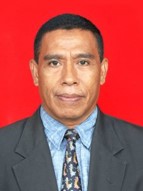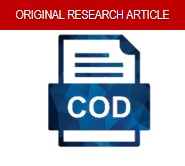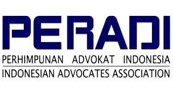Why Does Hazardous and Toxic Waste Continue to Pose a Threat to Mulya Asri Village?
DOI:
https://doi.org/10.46924/jihk.v7i1.287Keywords:
Hazardous and Toxic Waste, Fiqh Siyasah Tanfidziyah, Environmental PolicyAbstract
The management of household hazardous (B3) waste in rural areas continues to face significant challenges related to regulatory frameworks, public awareness, and the integration of Islamic values. This study aims to analyze the role of the Environmental Service in managing hazardous waste and to offer strategic recommendations grounded in existing regulations and the principles of Fiqh Siyasah Tanfidziyah to enhance B3 waste management in Mulya Asri Village, West Tulang Bawang Regency. A qualitative descriptive method was employed, utilizing interviews, observations, and document analysis. The findings reveal that the implementation of regional policies remains suboptimal, hindered by inadequate infrastructure, limited public education, and insufficient integration of Islamic principles concerning environmental stewardship. The study concludes that improving B3 waste management requires the integration of regional policies with a religiously informed welfare-based approach. It recommends strengthening regulatory frameworks, promoting Islamic-based environmental education, and fostering cross-sector collaboration at the village level.
Downloads
References
Journals
Cahyandari, Alifiah Tri Setya, and Galih Wahyu Pradana. “Peran Pemerintah Daerah Dalam Pelaksanaan Urusan Wajib Lingkungan Hidup: Studi Upaya Pengelolaan Limbah B3 Di Kabupaten Sidoarjo.” Jurnal Publika 10, no. 1 (2022): 159–74. https://doi.org/10.26740/publika.v10n1.p159-174.
Chikhladze, Tatia, Natia Chikhladze, Mariam Gigiadze, Luiza Gabunia, and Nana Gorgaslidze. “Effects of Mercury on Human Health.” Junior Researchers 1, no. 1 (2023): 78–93. https://doi.org/10.52340/2023.01.01.11.
Fajar, Adam Hafidz Al, Hidayatus Sholichah, Mudfainna Mudfainna, Rizka Anisa Rahma, and Izza Agitsna. “The Role of Islamic Values in Sustainable Development Innovation to Support the SDGs in Rural Communities.” Jurnal Paradigma 16, no. 1 (2024): 40–61. https://doi.org/10.53961/paradigma.v16i1.203.
Hasiany, Sillak, Riadi Tomson Eventius Naibaho, Yuni Lisafitri, and Intan Andriani Putri. “Toxic and Hazardous (B3) Solid Waste Management at Abdul Moeloek General Hospital: An Implementation Assessment in 2022 and Recommendations.” Indonesian Journal of Environmental Management and Sustainability 7, no. 1 (2023): 32–37. https://doi.org/10.26554/ijems.2023.7.1.32-37.
Hasibuan, Rosmidah. “Analisis Dampak Limbah/Sampah Rumah Tangga Terhadap Pencemaran Lingkungan Hidup.” Jurnal Ilmiah Advokasi 4, no. 1 (2016): 42–52. https://doi.org/10.36987/jiad.v4i1.354.
Holilah, Mina. “Kearifan Ekologis Budaya Lokal Masyarakat Adat Cigugur Sebagai Sumber Belajar IPS.” Jurnal Pendidikan Ilmu Sosial 24, no. 2 (2015): 163–78. https://doi.org/10.17509/jpis.v24i2.1453.
Januaripin, Muhamad, Kartimi Kartimi, and Yayan Rahtikawati. “Membangun Etika Ekologi Berbasis Nilai-Nilai Islam.” Journal on Education 7, no. 1 (2024): 7350–61. https://doi.org/10.31004/joe.v7i1.7445.
Khoirunnisa, Dwi Rizky Rahmadhani, and Eny Haryati. “Efektivitas Pengawasan Pengolahan Limbah Medis Kategori Limbah B3 (Bahan Berbahaya Dan Beracun) Di Provinsi Jawa Timur.” Soetomo Administration Reform Review 1, no. 5 (2022): 865–78. https://ejournal.unitomo.ac.id/index.php/sar/article/view/5357.
Mariana, Yosica. “Keterlibatan Masyarakat Urban Dalam Pengolahan Sampah Rumah Tangga.” ComTech: Computer, Mathematics and Engineering Applications 3, no. 2 (2012): 729–739. https://doi.org/10.21512/comtech.v3i2.2301.
Marsuyetno, Marsuyetno, and R. Hamdani Harahap. “Analisis Implementasi Kebijakan Pengelolaan Lingkungan Hidup Di Sumatera Utara: Studi Pada Badan Lingkungan Hidup Provinsi Sumatera Utara.” Jurnal Administrasi Publik 3, no. 2 (2013): 271–92. https://doi.org/10.31289/jap.v3i2.1349.
Nahak, Theresia Wilmince, Diah Utami Lutfiani, Caecilia Putri Gennosa, Muhammad Zahidi, Virgiawan Rambu Rabana, and Suyatno Suyatno. “Analisis Implementasi Kebijakan Tata Ruang Di Kota Yogyakarta.” Moderat: Jurnal Ilmiah Ilmu Pemerintahan 10, no. 1 (2024): 788–805. https://doi.org/10.25157/moderat.v10i4.4049.
Nazar, Muhamad, and Sitti Zahra Aulia Nazar. “Peran Komunitas Agama Islam Terkait Recycling Pengelolaan Sampah: Ditinjau Dari Perspektif Hukum Islam.” Halu Oleo Law Review 8, no. 2 (2024): 224–241. https://doi.org/10.33561/holrev.v8i2.122.
Nuralita, Fadila Ikke, and Abad Badruzaman. “Tafsir Ilmi Perlindungan Lingkungan Terhadap Ekologi Dan Keadilan Lingkungan.” Journal of Qur’an and Hadith Studies 14, no. 1 (2025): 245–60. https://doi.org/10.15408/quhas.v14i1.39957.
Nurwanti, Ega, Suci Pramadita, and Govira Christiadora Asbanu. “Perencanaan Sistem Pengelolaan Sampah B3 Rumah Tangga Di Kecamatan Pontianak Kota, Kota Pontianak.” Jurnal Teknologi Lingkungan Lahan Basah 11, no. 1 (2023): 228–37. https://doi.org/10.26418/jtllb.v11i1.61364.
Prasetiawan, Teddy. “Permasalahan Limbah Medis Covid-19 Di Indonesia.” Info Singkat: Kajian Singkat Terhadap Isu Aktual Dan Strategis 7, no. 9 (2020): 13–18.
Syaifuddin, Syaifuddin. “Pendampingan Tata Kelola Modern Untuk Pengurus Dewan Kemakmuran Masjid: Meningkatkan Kapasitas Manajerial Dan Kepemimpinan.” Society: Jurnal Pengabdian Masyarakat 3, no. 2 (2024): 47–54. https://doi.org/10.55824/jpm.v3i2.388.
Yurnalisdel, Yurnalisdel. “Analisis Pengelolaan Limbah Bahan Berbahaya Dan Beracun (B3) Di Indonesia.” Jurnal Syntax Admiration 4, no. 2 (2023): 201–8. https://doi.org/10.46799/jsa.v4i2.562.
Yusuf, Muhammad. “The Influence of Religious Values on Participation in Environmental Initiatives.” In Prosiding Fakultas Agama Islam Universitas Dharmawangsa, 4:1–14. Medan: Universitas Dharmawangsa, 2024. https://proceeding.dharmawangsa.ac.id/index.php/PFAI/article/view/333.
Prooceedings
Chintamy Rizky Prastiwi, Zuhud Rozaki, Retno Wulandari, and Isni Azzahra. “Peran Komunikasi Interpersonal Dalam Membentuk Persepsi Generasi Muda Terhadap Masa Depan Pertanian Indonesia.” In Proceedings of Universitas Muhammadiyah Yogyakarta Graduate Conference, 3:242–48, 2024. https://doi.org/10.18196/umygrace.v3i2.640.
Thesis
Prayugo, Muhamad Hudi. “Analisis Fiqh Siyasah Tanfidziyah Terhadap Peran Dinas Lingkungan Hidup Dalam Mewujudkan Pembangunan Berkelanjutan: Studi Pada Dinas Lingkungan Hidup Kota Bandar Lampung.” Universitas Islam Negeri Raden Intan Lampung, 2024. https://repository.radenintan.ac.id/34864/.
Yuliza, Rina. “Tinjauan Fiqh Siyasah Tanfidziyah Terhadap Implementasi Peraturan Daerah (PERDA) Kabupaten Lampung Selatan Nomor 2 Tahun 2015 Tentang Pengelolaan Sampah: Studi Di Dinas Lingkungan Hidup Kabupaten Lampung Selatan.” Universitas Islam Negeri Raden Intan Lampung, 2023. https://repository.radenintan.ac.id/30454/.
Books
Nur, Saifudin. Ilmu Fiqih: Suatu Pengantar Komprehensif Kepada Hukum Islam. Bandung: Tafakur, 2016.
Soemartono, Gatot P. Mengenal Hukum Lingkungan Indonesia. 1st ed. Jakarta: Sinar Grafika, 1991.
Regulations
Pemerintah Kabupaten Tulang Bawang Barat. Peraturan Daerah (Perda) Kabupaten Tulang Bawang Barat Nomor 1 Tahun 2024 tentang Penyelenggaraan Perlindungan dan Pengelolaan Lingkungan Hidup (2024). https://peraturan.bpk.go.id/Details/281751/perda-kab-tulang-bawang-barat-no-1-tahun-2024.
Pemerintah Republik Indonesia. Peraturan Pemerintah (PP) Nomor 22 Tahun 2021 tentang Penyelenggaraan Perlindungan dan Pengelolaan Lingkungan Hidup, Pub. L. No. 22, 1 (2021). https://peraturan.bpk.go.id/Details/161852/pp-no-22-tahun-2021.
Scriptures
Qur’an. “Surah Al-A’raf (7:56),” 622.
———. “Surah An-Nisa (4:58),” 625.
———. “Surah An-Nisa (4:59),” 625.
Interview
Karni, Ni Made. “An Interview Conducted with the Head of Waste and B3 Waste Management at the Environmental Service (DLH) Regarding the Availability and Effectiveness of Waste Processing Facilities.” 2024.
Supriyanto, Dwi. “An Interview Conducted with a Junior Environmental Impact Controller Regarding the Formulation of Regional Regulations as a More Structured and Implementable Legal Framework.” 2024.
Downloads
Published
Issue
Section
License
Copyright (c) 2025 Corrist Fatihal Salwa Habibah, Siti Mahmudah, Frenki Frenki

This work is licensed under a Creative Commons Attribution 4.0 International License.
Authors who publish with this journal agree to the following terms:
- Copyright on any article is retained by the author(s).
- The author grants the journal, the right of first publication with the work simultaneously licensed under a Creative Commons Attribution License that allows others to share the work with an acknowledgment of the work’s authorship and initial publication in this journal.
- Authors are able to enter into separate, additional contractual arrangements for the non-exclusive distribution of the journal’s published version of the work (e.g., post it to an institutional repository or publish it in a book), with an acknowledgment of its initial publication in this journal.
- Authors are permitted and encouraged to post their work online (e.g., in institutional repositories or on their website) prior to and during the submission process, as it can lead to productive exchanges, as well as earlier and greater citation of published work.
- The article and any associated published material is distributed under the Creative Commons Attribution 4.0 International License



 Sinta ID:
Sinta ID: 


















